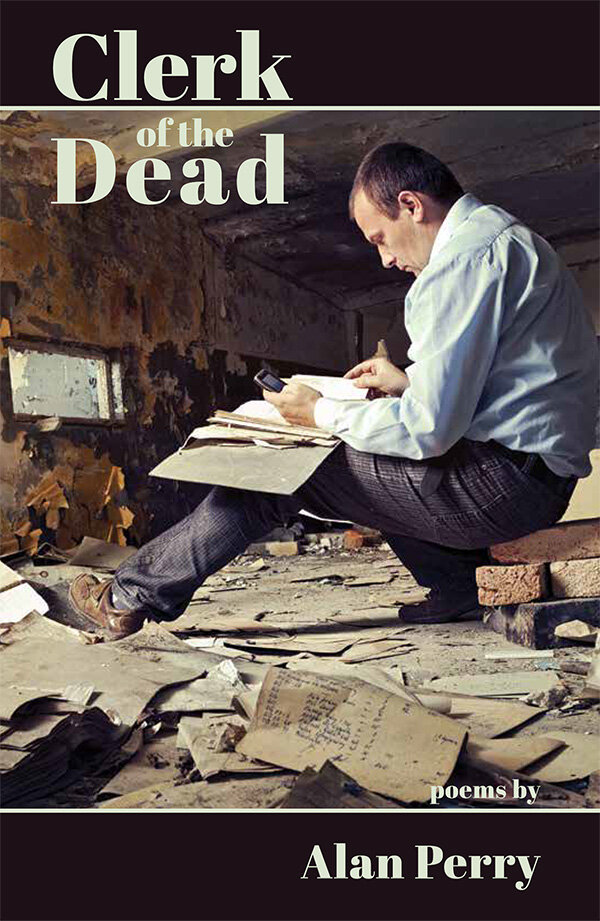CLERK OF THE DEAD BY ALAN PERRY
REVIEWED BY CAMERON MORSE
Unlike many of the books I’ve reviewed here, Alan Perry's Clerk of the Dead is not what I learned in my M.F.A. program to call a project book, that is, a collection of poems roughly centered on the same subject. As a student, I met this demand for thematic consistency thanks to the glioblastoma cancer diagnosis that gave me my earliest body of work. At the same time, I could see how projectness runs contrary to one of the big draws of poetry itself: eclecticism, variety, the grab bag surprise and joy of not knowing what will happen when you turn the page, where you will find yourself -- a more topical poetry. Clerk of the Dead has this topical quality: the JFK assassination gets treatment a poem apart from the MV George Prince ferry disaster.
The last topical collection I read was written by a poet I came with to my program but did not study there: Charles Simic. His Come Closer and Listen is gloriously topical, its first section alone containing poems about birds, laundromats, and insanity. That's what makes it, like Clerk of the Dead, such a fun read. Plus, there's something very Simic-y (read: macabre) about Perry’s chapbook title and opening poem, Weatherman, where, “Umbrella shards of sleet // arrow down the sides of buildings / like bony fingers pointing out // puddles and potholes.”
That poem is an ekphrasis of Rene Magritte’s, Golconda, in which men in overcoats and bowlers fill the air like rain. Another piece in the first section that engages in ekphrasis (more covertly, because it describes a family photo) is, A Bookmark in Her Bible. In the poem, I love how Brother Albert’s hands become, “balled-up clumps / on his lap, his face puffy / below a choppy bowl haircut.”
While ekphrasis is a popular workshop assignment in school, it’s also topical because ekphrastic poems must find their impetus outside themselves in the artwork. Ekphrasis has this in common with Perry’s historical poetry. The interest is outward, subject-oriented. In academia, the emphasis usually falls on form instead of content, probably because it’s easier to be “objective” about line breaks than the personal decision to write about unicorns or the Unabomber.
Clerk of the Dead’s attitude toward academia may best sum up its overall impression as expressed in the poem, You Speak to Me, where an abusive professor figure is “. . . . holding speechless students / by our throats,” and is self-serving, more intent on reading or scholarship than communication.
October 2020
cameron morse
Cameron Morse lives with his wife Lili and two children in Independence, Missouri. His poems have been published in numerous magazines, including New Letters, Bridge Eight, Portland Review and South Dakota Review. His first collection, Fall Risk, won Glass Lyre Press’s 2018 Best Book Award. His latest is Baldy (Spartan Press, 2020). He holds and MFA from the University of Kansas City—Missouri and serves as Senior Reviews editor at Harbor Review and Poetry editor at Harbor Editions. For more information, check out his Facebook page or website.



